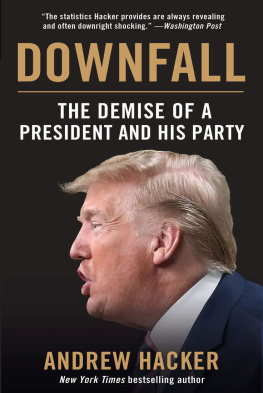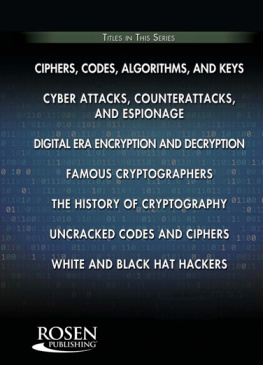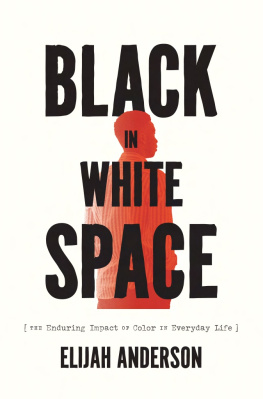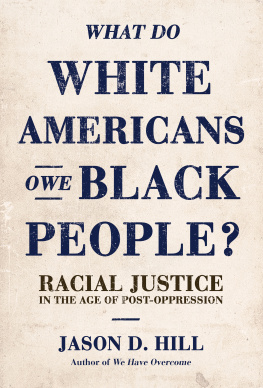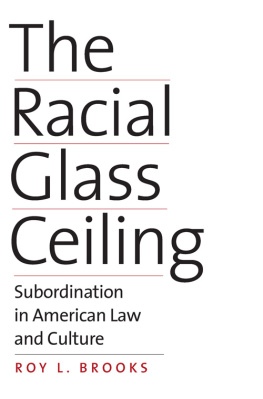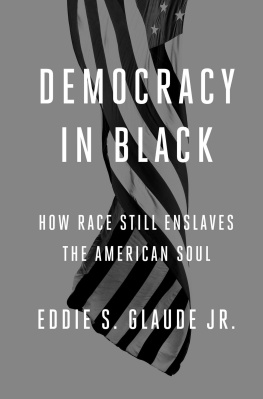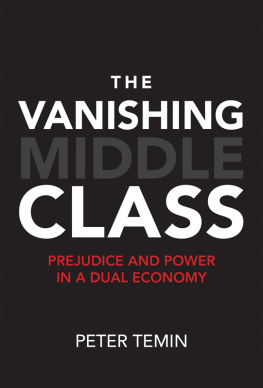TWO NATIONS
BLACK AND WHITE,
SEPARATE, HOSTILE, UNEQUAL
ANDREW HACKER
SCRIBNER
NEW YORK LONDON TORONTO SYDNEY SINGAPORE


SCRIBNER
1230 Avenue of the Americas
New York, NY 10020
Copyright 1992, 1995, 2003 by Andrew Hacker
All rights reserved, including the right of reproduction in whole or in part in any form.
First Scribner trade paperback edition 2003
SCRIBNER and design are trademarks of Macmillan Library Reference USA, Inc., used under license by Simon & Schuster, the publisher of this work.
For information regarding special discounts for bulk purchases, please contact Simon & Schuster Special Sales at 1-800-456-6798 or business@simonandschuster.com
Manufactured in the United States of America
1 3 5 7 9 10 8 6 4 2
Library of Congress Cataloging-in-Publication Data
Hacker, Andrew.
Two nations : black and white, separate hostile, unequal / Andrew Hacker.1st Scribner trade pbk. ed.
p. cm.
Includes bibliographical references (p. ) and index.
1. United StatesRace relations. 2. RacismUnited States. 3. African AmericansSocial conditions1975- I. Title.
E185.615.H23 2003
305.800973dc21
2003042565
ISBN-13: 978-0-743-23824-3
eISBN-13: 978-1-439-10494-1
Some material in this book appeared earlier in the New York Review of Books and is reprinted with their permission. Copyright 1987-92 Nyrev, Inc.
For My Students and Colleagues, Cornell University and Queens College
www.SimonandSchuster.com
CONTENTS
PREFACE
Every one of us could write a book about race. The text is already imprinted in our minds and reflects our moral character. Dividing people into races started as creating some convenient categories. However, those divisions have taken on lives of their own, dominating our culture and consciousness, coloring passions and opinions, contorting facts and fomenting fantasies.
So race is more than simply a subject to be studied or an issue for debate. Given these conditions, objectivity is hardly possible. Which brings us back to the book that each of us might write. The volume in your hand offers one authors understanding of the role and meaning of race in the contemporary United States. Its title borrows from Benjamin Disraelis remarks on the rich and poor of his Victorian England, and applies them to the two major races in America today: Two nations, between whom there is no intercourse and no sympathy; who are as ignorant of each others habits, thoughts, and feelings, as if they were dwellers in different zones, or inhabitants of different planets.
The subtitle, Separate, Hostile, Unequal, has several sources. First, there has been the continuing debate in our courts and conversations over whether racially separated facilities can ever be equivalent in status and social worth. Another issue is whether the separation springs from choice, or is imposed by one race upon the other. Hence the conclusion of the National Advisory Commission on Civil Disorders back in 1968: Our nation is moving toward two societies, one black, one back white, separate and unequal. Yet these two nations, these two separate societies, have existed from the start. And, to be utterly frank, their relations have never been amiable. Alexis de Tocqueville noted this hostility a century and a half ago. The most formidable of all the ills that threaten the future of the Union arises from the presence of a black population upon its territory, he observed during his visit to the United States. If he wrote these words during the days of slavery, they describe our racial reality today. Indeed, he could have been in our midst when he saw how the danger of a conflict between the white and the black inhabitants perpetually haunts the imagination of the Americans, like a painful dream. We can benefit by returning to Tocquevilles analysis in the concluding chapter.
My early training was in philosophy, where I soon discovered that we should not expect a consensus on social and moral issues. Not the least reason is that we frequently disagree on what we feel are the facts. While research can be useful, past a certain point we must bring intuition and imagination to bear. On this premise, the first part of this book will expand on some personal impressions concerning race in our time. These chapters will include observations on how we define and divide people into races; on what it is like to be black in the United States; and why white Americans react as they do to people of African ancestry. So the reader should be forewarned: this section will rely on subjective interpretations, since statements about how we behave in the realm of race are seldom amenable to evidence, let alone conclusive proof.
At the same time, in treating these and other topics, I have tried to provide enough plausibility to keep the conversation going. While the reader will not be asked to agree at every stage, it may be hoped that he or she may say, You could have a point; Im still willing to listen. Some of what will be said may seem overly generalized or unwilling to admit of exceptions. Here, too, indulgence is asked. Race is a tense terrain, where we often try to hide crucial truths from ourselves. One way to bring these premises to the surface is by making them as vivid as possible.
Part II of Two Nations will focus more precisely on the role race plays in such spheres as education and family life, as well as the economy, politics, and crime. This section, too, reflects the authors outlook and interests. Much of my career has been spent as a social scientist, which carries a commitment to revealing how the world really works. One way to array information is in statistical form. While numbers in and of themselves cannot pronounce final truths, they can offer insights and illumination if they are collated with care.
It is revealing that so much information about ourselves is classified according to race. We publish separate black and white breakdowns on whether mothers breast-feed their babies and on persons who have been arrested for embezzlement. The census even has separate racial columns for people who bicycle to work. But it would be a mistake to view such tabulations as depersonalized data. On the contrary, they can tell a very human story. And, as will be seen, statistics often surprise us with unexpected findings.
Nor will Part II rely entirely on tables. It will also offer a broader analysis of conditions impinging upon race. Thus the rise in fatherless households may emerge not as just one races problem but as having larger social causes. In the same way, what we call crime can be explained in terms of class as well as race. Or, by exploring forces that run deeper, we may come closer to realizing why so many men commit the crime of rape. Also, any discussion of unequal education should be conjoined with at least a few comments on what we want our offspring to learn and why we place so much emphasis on multiple-choice tests. These chapters will also seek to explain why some conditions related to race have changed over time, while others manage to persist, and still others have become more painful and pronounced. Given the breadth of these issues, the reader should not be surprised if more than a few impressions find their way into these analytical chapters.
One or two more remarks should suffice. No one could possibly tally all the books and articles that have been written about race in America. A host of scholars, journalists, and commentators have produced an impressive literature. Prominent among these are authors who have actually lived on the nations racial frontiers. J. Anthony Lukass


